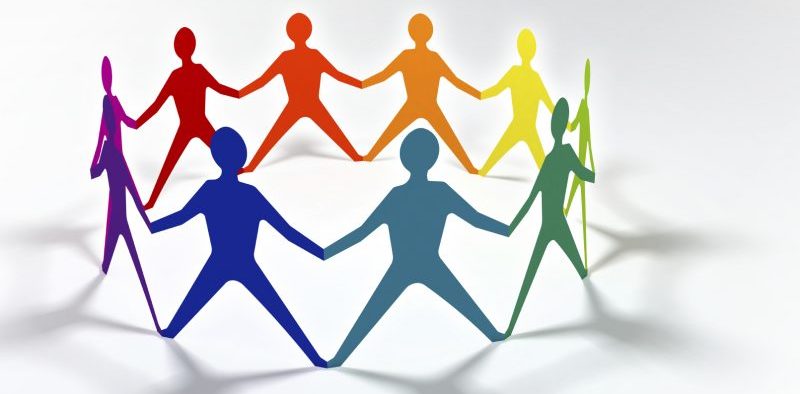![]()
During my time as a search and rescue volunteer and K9 handler I learned a lot about leadership, teamwork, training and trust. These four foundational areas of an organization’s culture are oh-so-important in any group, but they are critical when the mission is saving lives and every minute counts.
Over the past couple of posts, I’ve been writing about how the lessons I learned in search and rescue translate into business. These foundational pieces – trust, training, teamwork and leadership – are key in building successful organizations. Ignoring cracks in your foundation can lead to catastrophic results. So far we’ve talked about trust and training and today we delve into teamwork.
Esprit de Corps – The common spirit existing in the members of a group and inspiring enthusiasm, devotion and strong regard for the honor of the group.
Teamwork. It’s a powerful word that is overused but seldom fully utilized. It relies on the foundation pieces of training and trust that we’ve previously discussed. To see examples of precision teamwork in action look no further than emergency responders. Watch a SWAT team or fire crew in action and notice how each team member gets orders from the incident commander and then swiftly executes their job to complete the mission. Teamwork like this just doesn’t happen. It takes an incredible amount of training and trust to execute.
There is no room in teamwork for micromanaging. Imagine a fire chief telling his team to wait outside while he goes into a burning building and then comes out to make a detailed list of how and what each person should do. That would be disastrous.
Search and rescue follows the same hieratical leadership format as most emergency responders. A call comes in for a missing hunter or a hiker stuck precariously on a mountainside needs rescuing. The incident command system launches. The leader takes charge of the scene, already fully knowing and trusting the capabilities of each team member. He or she deploys resources, based on calculations on the best probability for success. Each team member has been trained and gets to work.
As a K9 handler, my fellow teammates and our four-legged partners often garnered a lot of attention. There is something about watching dogs work that draws onlookers. Often I was asked about the dogs finding people and my answer was always the same — no one dog or person finds a lost person. It takes an entire team of people working together towards a common goal. The Sheriff deploys search and rescue. Dog teams get deployed by the incident commander, who relies on a host of people providing information on maps, topography, weather and more. K9 handlers rely on their support person and communications. Each and every role is important to a successful mission, including the person providing sandwiches and coffee.
If you want to build a successful team for your organization, my recommendation is to take a page out of the emergency responders’ handbook.
- Pick the right people: Strong teams aren’t formed by throwing together random people and expecting them to perform. Take your time selecting team members appropriate for the job. Think of this step this way – you wouldn’t send a letter carrier into a hostage situation, nor would you deploy a negotiator in logistics delivery. Get to know your people and their abilities and deploy them where appropriate.
- Communicate effectively: Heaven knows that in government we love our acronyms, but speaking alphabet soup to someone who neither speaks the language nor has an interpreter doesn’t work. Make sure you all speak the same language and communicate often. Create an environment where team members feel safe sharing their ideas and opinions. Be aware of group think.
- Goals: Effective teams work together to achieve common goals. Really effective teams create these goals together and communicate said goals, strategies, progress and milestones. The sum of the team is greater than parts. Situational awareness of all.
- Strength: Strong teams have unity and reliability. They support, trust, and believe in each other. They have enthusiasm, cooperation, fellowship, honor, and loyalty. Varied experiences and abilities along with differing opinions create better teams.
Remember, building teams takes strategy, time, patience, and hard work. If you put in the time and effort, you too can have a team that works with the precision of an honor guard, and effectively meet your goals.
Wendy Dutenhoeffer is part of the GovLoop Featured Blogger program, where we feature blog posts by government voices from all across the country (and world!). To see more Featured Blogger posts, click here.





Love your recommendations on teamwork! Thanks for posting!
Thank you so much Katarina. I really appreciate you reading and your feedback.